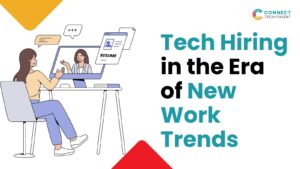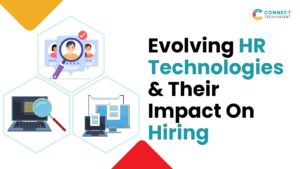The occurrence of pandemic has forced organizations across the globe to shift various business affairs online. The changing workplace trends and the rise of technology as a business enabler have resulted in significant disruption in almost every industry. The field of recruitment is no exception.
On one hand, applications received through job boards accounted for 19.12% of job hires worldwide (Source). On the other, more than 3 million identity fraud and theft reports were received were reported by the Federal Trade Commission (FTC) in 2018.
Given the remote work environment prevailing because of the pandemic, the numbers can be expected to have grown further. Amidst the high risk of potential employees being engaged in fraudulent behavior, employee background verification comes to the rescue.
If your business undergoes frequent hiring cycles, you must know about the importance of employee background verification.
What is Employee Background Verification?
Employee background verification also referred to as employee verification, is the process of screening a candidate’s worthiness thoroughly. It includes checking work history, academic certificates, college degrees, and legal records. In other words, it is a comprehensive review of an individual’s financial, commercial, employment, and criminal records. While some employers conduct the background verification process after hiring an employee, most of them perform these checks as a part of the recruitment cycle.
As an employer, you can either perform employee verification in-house or hire a third party to do this for your organization. In the latter case, you need to abide by the Fair Credit Reporting Act (FCRA) which restricts how you can check the credentials and what you are allowed to check.
Why is Employee Background Verification Needed?
As an employer, the employee background checks are the last step in the process before making an offer to a candidate. Since they cover a wide range of personal, financial, and social verification, they can act as a binary decision-making tool in your hiring process.
Organizations that tend to skip background checks of potential candidates do so to save on the additional cost that this process takes. But it is important to acknowledge that the right employees are the most valuable asset for your business. Faltering during the recruitment process and not conducting employee verification can lead to dire consequences which may not go unnoticed. Eventually, there will be a higher risk of financial losses.
As per a survey by Career Builder, 74% of companies say they have hired the wrong person for a position, with an average loss of $14,900 per failed hire.
With employee background verification conducted at the right stage of hiring, you can prevent both financial and reputational loss that can occur from hiring the wrong person.
4 Risks You Take When Not Conducting Employee Verification
1. Accepting candidates with false credentials
Many candidates applying for a job opportunity with your organization can hide their original identity and produce fake credentials to get the job. While pretending to be a different person than those given in their identity certificates, they may also hide suspicious information linked to their original identity.
According to FTC’s Consumer Sentinel Network Data Book, more than 5.7 million consumer reports about fraud and identity theft were reported in 2021. Besides this, many cybercriminals have done their best to get a job while capitalizing on the pandemic during 2020.
Adding such individuals to Getting such individuals enrolled in your workforce can create an unsafe environment and a higher risk to the company’s sensitive data.
2. Increase in cybercrime
From hackers playing mischief with consumers to organized crime syndicates, cyber threats are almost everywhere. Gartner says that the risk of cyberattacks in turn created a security market worth $170 billion in 2017. On average, more than 500 million people are victimized by cyber crimes annually, or 12 people every second. This has further led to the expectation that global cybercrimes will grow by 15% every year to $10.5 trillion by 2025.
Not checking the criminal records of a candidate under employee background verification can pose a threat to your business and the livelihood of other employees. You may also face legal actions if hiring an employee with a criminal record comes to light later.
3. Negligent hiring of employees
Some candidates even try to hide truthful information about mishaps that happened at their previous workplaces or while studying. This can be related to drug dealings or criminal offenses committed as a juvenile. While they can hide such information to show a clean record on paper, you can only find the truth with a thorough background verification process.
For example, if you find a history of drug usage or possession in the pre-screening stage, it would be easier for you not to hire such a candidate. This will not only protect workplace productivity but also ensure the physical and mental well-being of existing employees.
4. Workplace violence resulting in an unsafe work environment
Each year, millions of workers fall victim to workplace violence. The recent numbers from Injury Facts confirm 20,050 injuries and 392 fatalities in 2020. Workplace violence, which can be categorized as having criminal intent, with client/customer, or worker-on-worker, can stem from bad hiring decisions.
While it is acceptable that you cannot prevent every possible incident with employee verification, you can certainly avoid them to some extent. A proper background verification process prevents you from hiring individuals with a history of workplace violence. Besides this, you can adopt a zero-tolerance policy towards violence at work in conjunction with local law enforcement.
Possible Impact of Not Conducting Employee Background Verification
1. Loss of business-sensitive customer data
The cases of data breaches are on the rise. You might have heard of LinkedIn losing data of 700 million users on the dark web in 2021 or Facebook being in the news for exposing datasets to the public Internet. If it can happen to these giants, it can certainly happen to you.
Hiring a candidate without conducting employee background verification can increase the risk to business-related data, including customer details. If this data would reach the hands of your competitors, it can lead to significant financial damage to your firm.
2. Reputational loss
A huge part of a bad hiring decision and the resulting breaches is that organizations need to do all that is possible to save their market reputation. A Forbes report found that a data breach has resulted in severe reputational damage to 46% of organizations. That’s near to half of all the firms taken into consideration.
While the news of a data breach may disappear after a few weeks or months, consumer behavior towards a brand can last a lifetime as they need to ensure identity protection. Since the hiring process is a sensitive access point for intruders to enter your organization, it makes sense to solidify it with a stringent background verification process.
3. Legal complications
While most employment laws permit organizations to verify a candidate’s employment and education history, they may require the permission of the applicant to handle confidential information. For example, on making a conditional job offer, you may enquire, as per applicable laws, about the health conditions of the candidate that would prevent them from performing the job. Similarly, several jurisdictions in the United States limit the use of credit history for employment decisions.
Hence, it makes sense to proceed with the employee verification carefully to avoid various legal hurdles on your way to hiring the right candidate.
How to Conduct Employee Background Verification
If you want to conduct a candidate’s background check on your own, you need not ask for his/her consent. However, if you hire a third party to do it for you, then you must notify the candidate in writing of the verification involved. You can proceed with:
- Verifying the education details
- Checking the employment history, if any
- Contacting their professional references
- Performing residential background check
- Checking the identity as per the proofs submitted
- Checking credit history if required
Other than the above-mentioned checks, you can also get the drug screening test done to hire right. In case you decide not to hire a candidate because of the employee verification report, you need to provide a notice to the candidate mentioning the employment screening company you have hired.
Keep in mind that you cannot make hiring decisions based on an individual’s disability in several states. You may only inquire about their ability to perform the duties related to a job posting and decide accordingly.
Tips to Prevent Employee Fraud
- Review the history of new hires, especially in payroll, finance, and security departments carefully
- Keep a close eye on the departments that have access to sensitive information
- Watch out for unusual employee behaviors, such as employees working longer than usual, abrupt resignations, etc.
- Take proactive measures to prevent possible fraud by teaming up with both a staffing agency and an employee background verification agency
Key Takeaways
- An employee background verification includes a review of a candidate’s employment, financial, and criminal records.
- As an employer, it makes sense to conduct employee verification during the hiring process and not after an employee is hired.
- You need to check state laws related to the type of employee checks you can proceed with.
Join Hands with Connect Tech+Talent For Specialized Hiring
Adding employee verification to your hiring process is half the battle won. However, you can further strengthen the quality of hires with the help of external recruiters. Hire Connect Tech+Talent – a renowned staffing agency based in Austin with experience in hiring for tech roles in leading organizations. To know more, click here.
FAQs
1. What can you check as an employer during the background verification process?
In general, you can check a candidate’s identity, employment history, criminal records, and drug screening reports in the process.
2. Is employee background verification necessary?
This process throws light on a candidate’s skills, experience, work history, and more such details. Although it is recommended to perform the verification, it is up to the employer to decide whether to do it or not.
3. Does the HR team do employee verification?
This can be done in-house or with the help of external background verification agencies.




